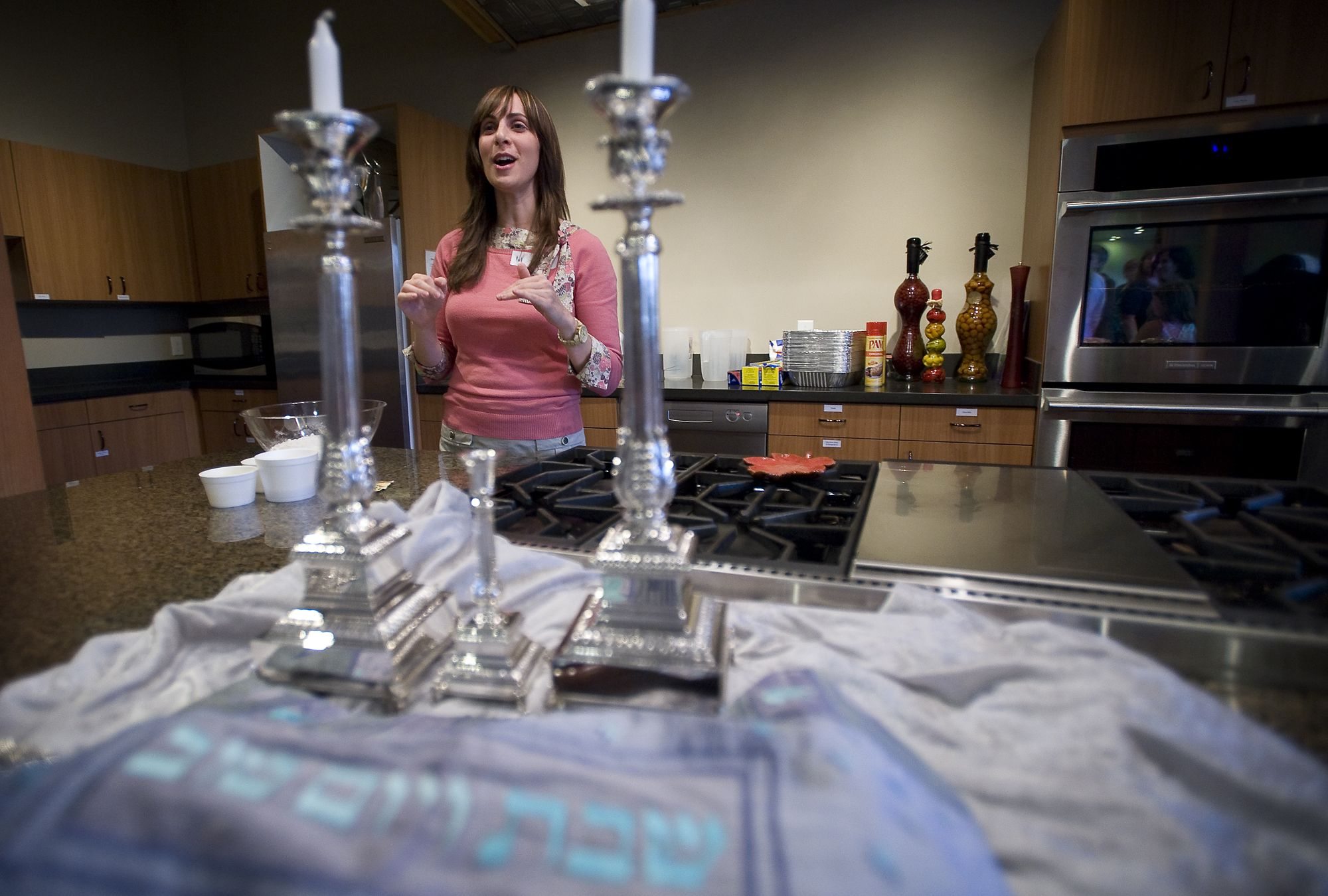It was Wednesday evening and a capacity crowd filled a small cooking classroom at Chuck’s Produce in Cascade Park to learn how to make challah.
Baked loaves were on display of the beautiful, traditional braided bread that many Jewish folks prepare for special occasions. Some had been washed with an egg mixture before baking, to make them shiny. Others contained raisins for a slightly sweet flavor.
Long tables were set with bowls of white flour, yeast, salt, sugar and egg. There was so much excited chattering in the crowd of perhaps 50 that the teacher, Tzivie Greenberg, had to compete for some attention as she stood behind a cooking counter.
Greenberg is the wife of Rabbi Shmulik Greenberg of Vancouver’s Chabad Jewish Center.
With Rosh Hashanah, the Jewish new year according to the Hebrew calendar, coming up on Sept. 28 and 29, the class was well-timed.
As the teacher demonstrated, the crowd of mostly women and girls put two-thirds of the sugar into the flour bowl, saving one-third to be placed into a small bowl of yeast, along with warm water. As they watched, the yeast activated.
When the ingredients were all in the flour bowl, it was time for the students to get their hands messy.
“You can’t make dough with a plastic fork,” the teacher advised, saying she uses a mixer at home.
They kneaded the ingredients and later added more flour, to control the stickiness.
And soon it was time to place plastic wrap over the bowls, to let the yeast do its work and start to rise.
And Greenberg added some history and explanation of her faith.
Whatever food and other blessings they have, Jews believe that God wanted them to be grateful and show it, she said.
“It’s by God’s blessing that you have it,” she said.
Challah is a word for a portion or tithe, and a portion is to be set aside, as Jews did in ancient times for a temple priest, as a reminder. These days a portion is set aside, burned and discarded to keep that tradition alive.
That attitude of appreciation is to be extended to one’s parents, children, co-workers and the community.
While baking with one’s children, she said, Jews should say blessings to raise their spirituality and awareness.
And then came the artistic part, rolling sections of the dough into strands, sometimes six, that are woven into the loaves.
John Branton: 360-735-4513 or john.branton@columbian.com.



